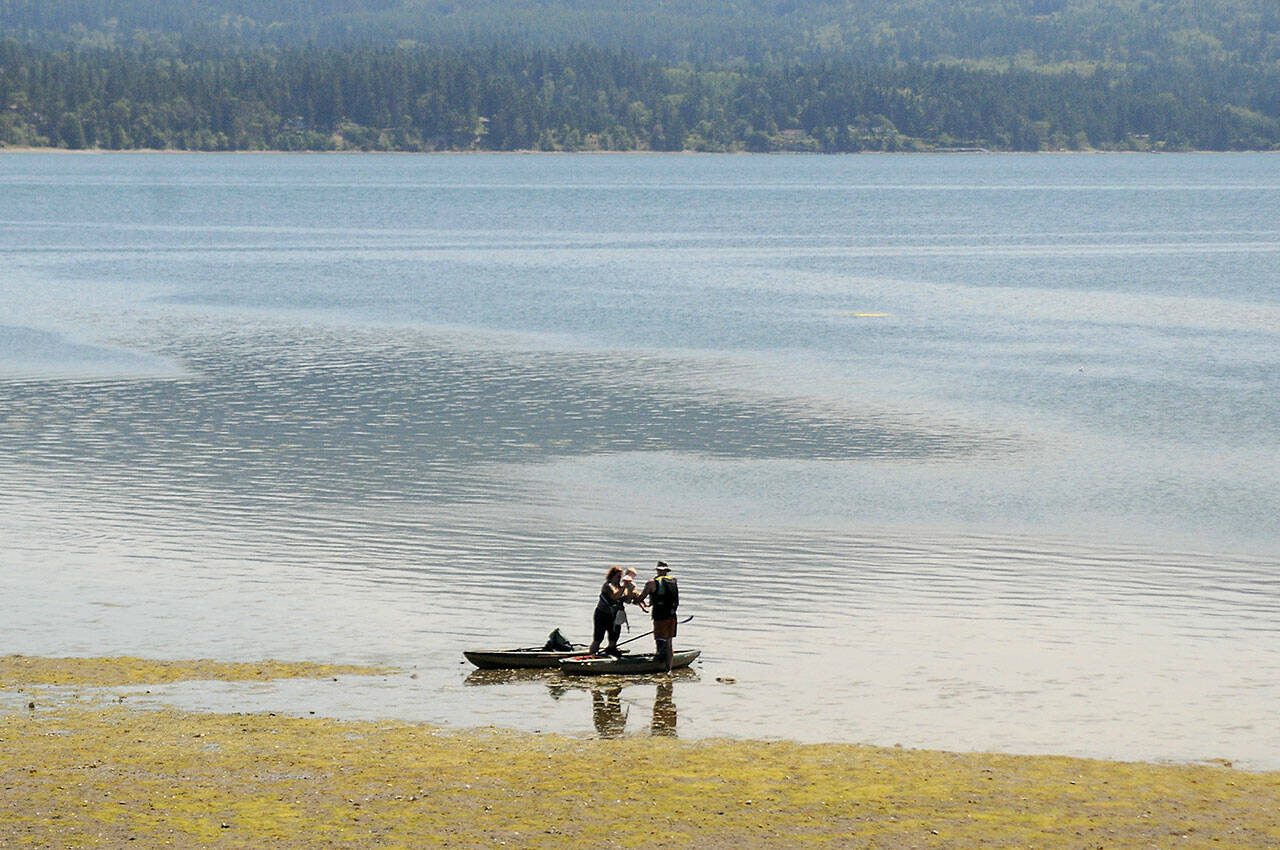Temperatures are beginning to dip on the North Olympic Peninsula, but the real cooling trend is forecast to begin Sunday night.
That’s the news from the National Weather Service in Seattle on Thursday.
“We’ve had an upper-level ridge over Western Washington that’s causing us to be in an extended stretch of hot weather,” said Kayla Mazurkiewicz, meteorologist with the NWS.
“On-shore marine air will bring relief and a low pressure will be moving in,” she added.
“It will feel a lot more cooler than it is.”
On Thursday, the highs were not quite as high on the Peninsula as they had been earlier in the week.
After a peak in the mid-80s on Tuesday, Port Angeles on Thursday clocked 70 degrees, with both Sequim and Port Townsend in the mid-70s, by 3:30 p.m.
However, Forks on the West End still sweltered in 80-degree heat.
Seattle, which on Tuesday reported a new record daily high of 94 degrees, was expected to suffer the heat spell into Saturday at least. On Thursday, Seattle marked 86 degrees.
Officials in Seattle and Portland, Ore., on Tuesday issued air quality advisories expected to last through Saturday, warning that smog may reach levels that could be unhealthy for sensitive groups.
Triple-digit heat was reported in Spokane, which hit 102 degrees.
Excessive heat warnings, which were not in effect on the Peninsula on Thursday, were extended through at least Saturday for other areas such as Seattle, Eastern Washington and Portland, Ore.
Climate change is fueling longer heat waves in the Pacific Northwest, a region where week-long heat spells were historically rare, according to climate experts.
Residents and officials in the Northwest have been trying to adjust to the likely reality of longer, hotter heat waves following last summer’s deadly “heat dome” weather phenomenon that prompted record temperatures and deaths.
About 800 people died in Oregon, Washington and British Columbia during that heat wave, which hit in late June and early July. Four deaths were attributed to heat on the Peninsula. High temperature records were smashed throughout the region.
Other regions of the U.S. often experience temperatures of 100 degrees. But in the Pacific Northwest, people are not as acclimated to the heat and are more susceptible to it, said Craig Crandall, a professor of internal medicine at the University of Texas Southwestern Medical Center, according to The Associated Press.
“There’s a much greater risk for individuals in areas such as the Northwest to have higher instances of heat-related injuries and death,” Crandall said.
Oregon Gov. Kate Brown declared a state of emergency for much of the state, AP said.



